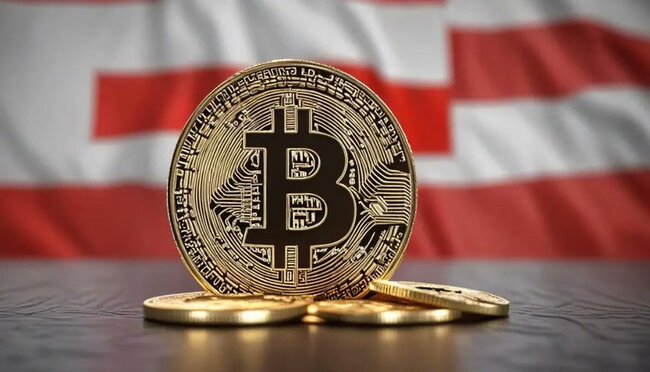Highlights:
- The central bank of Poland will not add Bitcoin to its reserves because of its volatility.
- Poland is increasing its gold reserves because gold is stable and protects against market risks.
- Poland now has more Bitcoin ATMs than El Salvador but is still cautious about the asset.
The National Bank of Poland (NBP) has declared that Bitcoin will not become part of its monetary reserves. According to NBP President Adam Glapiński, the assets held in reserve must maintain perfect security to safeguard the financial stability of the country. Poland keeps its reserves in gold, U.S. dollars, and euros. According to the central bank, the current reserves will provide long-term benefits to the country.
🇵🇱POLAND SNUBS BITCOIN RESERVE
Poland's central bank rejected Bitcoin as a reserve asset, calling it too risky and unstable.
NBP President Adam Glapiński insists reserves must be "safe, stable, and permanent," and according to him, Bitcoin doesn't qualify.
Meanwhile, the U.S,… pic.twitter.com/I1OvBgQZ1P
— Mario Nawfal (@MarioNawfal) February 8, 2025
Poland has expressed concerns about Bitcoin’s risks since 2017. Officials maintain that virtual currencies lack a central authority, so they are not suitable for national reserves. The NBP has maintained its position despite criticism from the crypto community.
Poland Strengthens Its Gold Strategy for Stability
The NBP has been increasing its gold reserves as part of its long-term financial strategy. Glapiński noted that Poland purchased its gold reserves during favorable market conditions which has led it to appreciate in value. According to the central bank, gold serves as a reliable and secure asset particularly when economic uncertainties hit. Poland has increased its gold assets to create financial stability against world market volatility.
The national reserves of the country contain a major share of gold assets at present. Gold has proven to be more stable than Bitcoin because it demonstrates limited price fluctuations. The NBP maintains that financial stability serves as the foundation for sustaining economic resilience.
Many countries are incorporating Bitcoin into their financial strategies. El Salvador adopted Bitcoin as a legal tender in 2021. The move allows its citizens to use BTC in their daily transactions. However, a recent loan deal with the IMF has led the country to pull back on Bitcoin adoption. Germany and the Czech Republic are also considering integrating Bitcoin into their reserves.
Texas, Utah, and New Mexico have already introduced bills that are currently in different stages of legislation. So far, 22 states have initiated bills that are pushing for the adoption of Bitcoin. Cynthia Lummis has been pushing for a strategic Bitcoin reserve under the current US leadership. If approved, it will position the country as a leader in cryptocurrency adoption.
Poland Surpasses El Salvador in Bitcoin ATM Expansion
Poland has set a new milestone in Bitcoin ATM installation by surpassing El Salvador to become the fifth largest in rankings. The country installed 12 new Bitcoin ATMs in January to expand crypto access. The growing number of Bitcoin ATMs demonstrates the growing interest in cryptocurrencies in the country.
An interesting fact: 🇵🇱 Poland surpasses El Salvador to become the fifth-largest Bitcoin ATM hub globally, recording 219 active machines amid a four-month installation spree. pic.twitter.com/nawz22yv8D
— Kyrrex (@Kyrrexcom) February 3, 2025
El Salvador has not added any Bitcoin ATMs since 2022. Poland has continued to expand its Bitcoin ATM network by installing additional machines in the past four months. The United States and Canada are the leaders in Bitcoin ATM networks with thousands of machines installed across both countries. Australia and Spain follow in third and fourth place, respectively.
Best Crypto Exchange
- Over 90 top cryptos to trade
- Regulated by top-tier entities
- User-friendly trading app
- 30+ million users
eToro is a multi-asset investment platform. The value of your investments may go up or down. Your capital is at risk. Don’t invest unless you’re prepared to lose all the money you invest. This is a high-risk investment, and you should not expect to be protected if something goes wrong.






